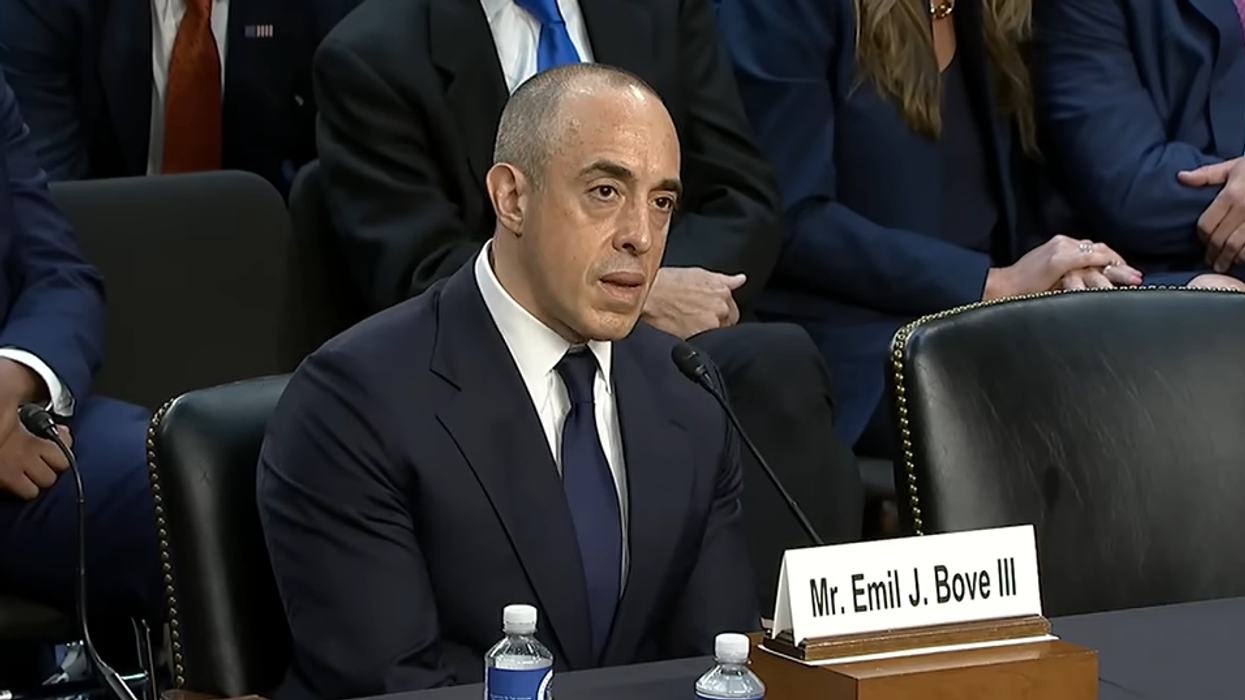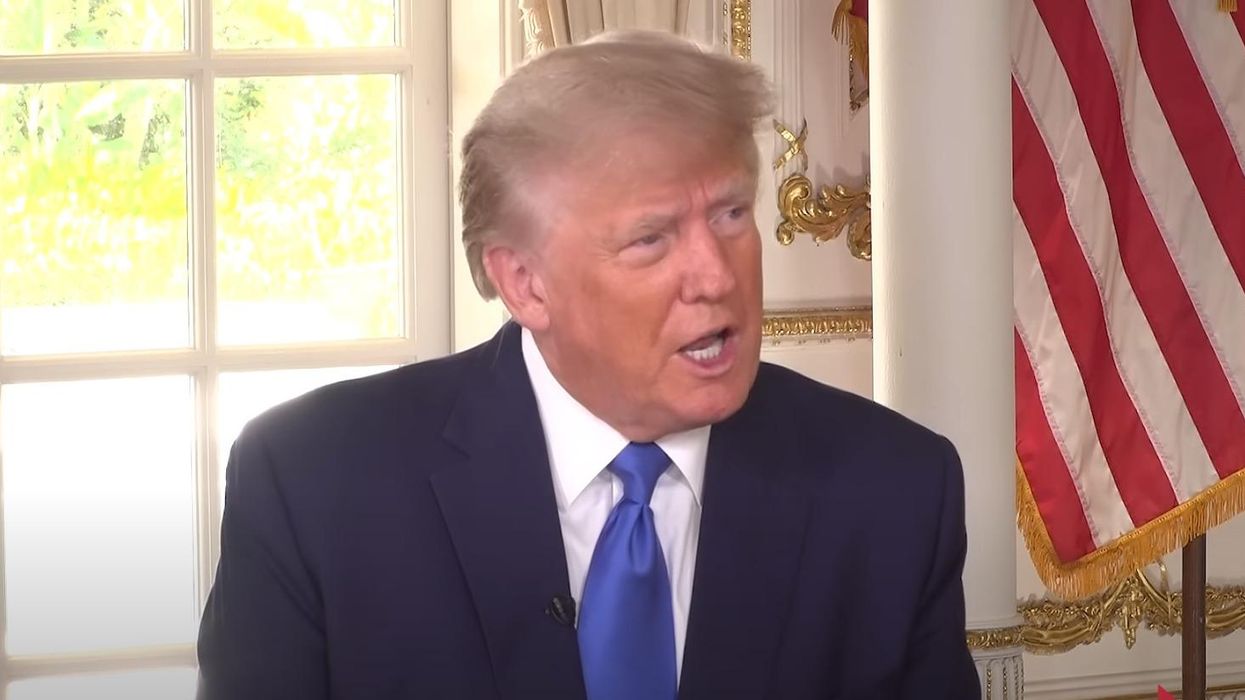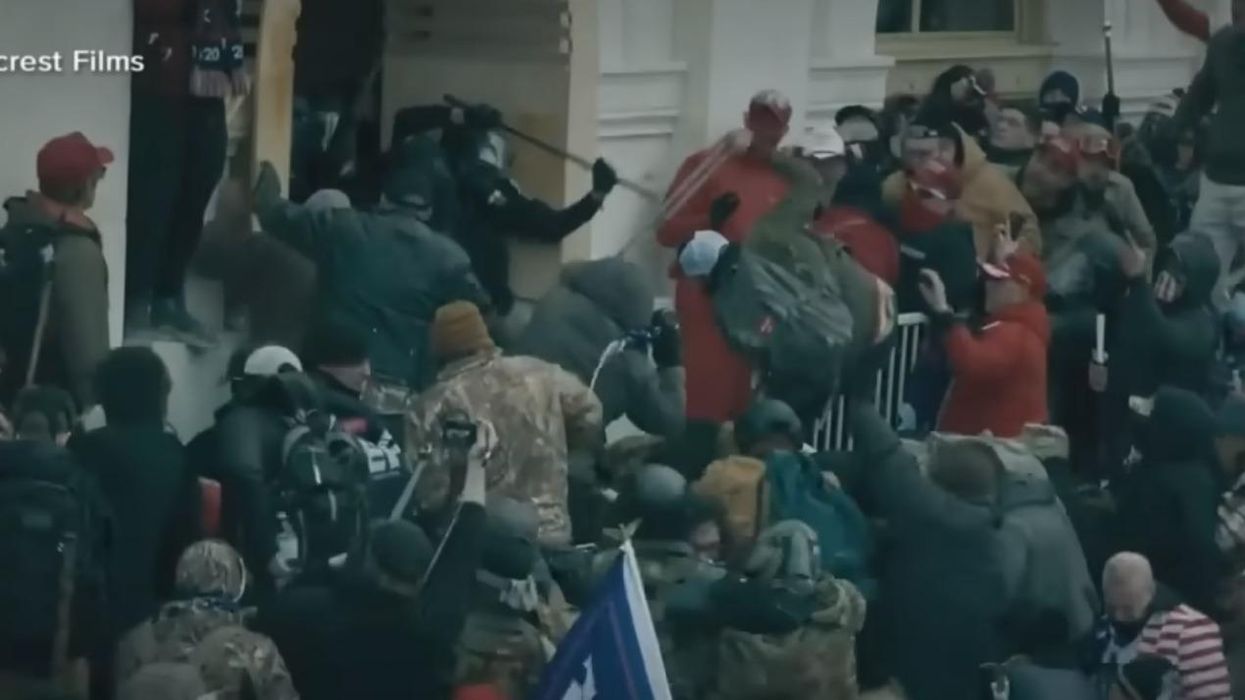Far-Right Judges Named By Trump Display 'Pattern Of Dishonesty' On 2020 Election
President Donald Trump has appointed 27 judges to federal courts so far in his second term, and in addition to their right-wing interpretation of the law, an analysis of the judges’ comments to senators during the confirmation process reveals a key commonality between the president’s appointees: All were willing to evade direct questions about whether Trump lost the 2020 election and whether the US Capitol was attacked by a violent pro-Trump mob on January 6, 2021.
Demand Justice examined the Questions for the Record (QFRs) that were submitted by the Senate to the 27 judicial nominees regarding the election and January 6, and found that their answers to those two specific questions were nearly uniform in many cases—repeating certain phrases verbatim and “overall, using unusual and evasive language that’s almost entirely outside the normal, historical, and common lexicon used to describe such events.”None of the 27 nominees affirmatively answered that former President Joe Biden won the 2020 election, as proven by numerous courts that rejected lawsuits claiming otherwise and by both Republican and Democratic election officials. Instead, the nominees said Biden was “certified” as the winner, and 16 of them said he “served” as president.
Some of the nominees, including Emil Bove of the US Court of Appeals for the 3rd Circuit, Whitney Hermandorfer of the Court of Appeals for the 6th Circuit, and Kyle Dudek of the Middle District of Florida, expanded on their answers, saying they would avoid “opining on the broader political or policy debate regarding the conduct of the 2020 presidential election.”
Demand Justice said those comments “strongly, and falsely,” suggested the 2020 election results are still a matter of legal dispute.
Josh Orton, president of the group, told MSNBC‘s Morning Joe on Tuesday that the nominees’ answers preserved “their ability to say, ‘I did not contradict Donald Trump’ on what we know are the two most third-rail issues to Donald Trump.”
“If nominees don’t answer these two questions, I think it amounts to, essentially, a political loyalty test,” said Orton.
Regarding questions about whether the US Capitol was attacked on January 6 and whether the attack was an insurrection, said Demand Justice, “not one nominee was willing to speak to the events that occurred on that day.”Twenty-one of them, including Bove, Hermandorfer, and Joshua Divine of District Courts for the Eastern and Western Districts of Missouri, characterized the attack—in which Trump supporters tried to stop Congress from certifying the 2020 election results—as a matter of debate.
None of the nominees mentioned the law enforcement officers who died as a result of the attack, even though some mentioned violence against law enforcement broadly in their other QFR answers; the fact that the House and Senate chambers were broken into; or the death threats rioters directed at then-Vice President Mike Pence.
“It is unprecedented for lifetime nominees to the federal bench to provide dishonest and misleading answers about historical facts—and it is deeply concerning that Trump’s nominees are parroting such strikingly similar language, the president’s own language, to avoid telling the truth,” said Orton.Orton added that “the kicker” of the report is that 15 members of the Democratic Caucus have voted for Trump’s judicial nominees despite their evasive and dishonest answers about January 6 and Trump’s 2020 loss.
“Excuse me? People died,” said Orton. “If you’re willing to appease Trump’s big lies, you have no business anywhere near a court, period.”
Democrats who have voted in favor of confirming Trump’s nominees include Sens. Chris Coons (D-DE), Tim Kaine (D-VA), Mark Kelly (D-AZ), and Amy Klobuchar (D-MN.).
Reprinted with permission from Alternet











